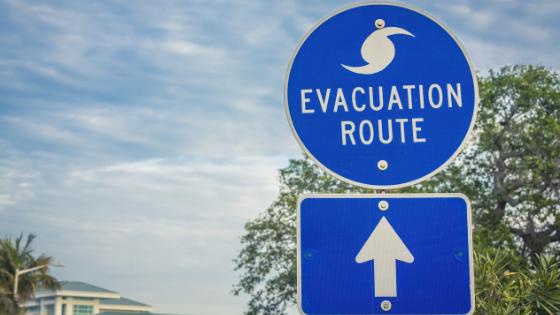If you’ve never truly experienced the wrath of nature, a hurricane is it. Unfortunately, some areas are more prone to these storms than others.
If you live in one such area, hurricane preparedness isn’t an option. It’s a must if you want to keep your family safe. Here are a few things you can do to protect your home and your loved ones.
Gather Information
First, you need to gather information.
You should know your area’s risk of hurricanes, as well as your relative flooding risk. Take the time to figure out how vulnerable your home is to flooding, storm surges, and high wind.
You also need to know your evacuation zone. If your area is at high risk of flooding in the event of a hurricane, you should figure out a safe shelter (like a FEMA safe room) and practice going there.
If you haven’t yet, sign up for your community’s emergency alert system and get familiar with what National Weather Service watches and warnings mean.
Create a Hurricane Plan
From there, you need to sit down with your family and create a hurricane plan. Do this well before there is any sign of a hurricane in sight so that you can be prepared if one suddenly hits.
For example, you should make a list of emergency phone numbers. Pre-program them into every family member’s phone and keep a list of them in easy-to-find areas around the house. You should have all of the following numbers:
- Local law enforcement
- Local hospitals
- Emergency management offices
- County fire and rescue services
- The local American Red Cross branch
- Your utilities company
- Your insurance agent
If you haven’t yet, figure out where the nearest storm shelter is and practice multiple routes to get there. Keep maps of the routes in every car in an easy-to-access place. You should also stock up on plenty of emergency supplies. These include things like:
- A fire extinguisher (see How to Use a Fire Extinguisher)
- A first aid kit
- A three-day supply of non-perishable food
- Bottled water
- Flashlights
- Batteries
- Whistles to signal for help
- Dust masks
- A manual can opener
- A wrench and pliers
- Local maps
- Cell phone, charger, and backup batteries
You should also include any family documents, such as identity paperwork, health records, copies of insurance policies, and bank statements, all stored in a sealed, waterproof bag. If you have any prescription medication, keep a supply of it with your kit.
Prepare Your Home
You’ve prepared yourself and your family. Now it’s time to prepare your home.
Start with the windows. Don’t believe people when they tell you that a duct tape X will be sufficient. If you can, get a contractor out to board up your windows. If not, get some nails and plywood and board them up yourself to help mitigate potential damage.
If your doors have any loose screws or missing bolts, don’t be surprised if you come home to find they’re destroyed. Take the time to make sure your door is properly installed. A 1-inch deadbolt is the minimum you need to fortify your door, but you should do more if you can.
If your home is newly built in an area prone to hurricanes, it may already have straps or clips built in for reinforcement. If your home is older, get a contractor to fit these to your roof ASAP. Don’t wait until a hurricane is approaching – contractors will be booked left right and center doing this for other people.
Hurricane Preparedness Keeps You Safe
Hurricane preparedness is all about planning ahead. If you take steps to protect your home and your family before any sign of a hurricane, you’ll be ready to spring into action when a hurricane does come.
Further Reading: Hurricane Preparedness for Businesses
